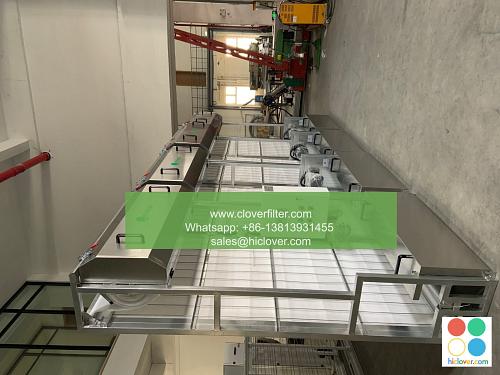Breathe Easy: How Automated Air Filtration Can Revolutionize Indoor Air Quality

Indoor air pollution is a silent killer, silently harming millions of people worldwide. In fact, the World Health Organization (WHO) estimates that indoor air pollution is responsible for over 4.3 million premature deaths annually. One of the most effective ways to combat this issue is through automated air filtration. In this article, we’ll explore the benefits of automated air filtration and how it can revolutionize indoor air quality.
The Problem with Indoor Air Quality
Indoor air pollution is caused by a combination of factors, including:
- Poor ventilation: Inadequate airflow can trap pollutants and contaminants indoors.
- Airborne particles: Dust, pollen, pet dander, and other small particles can aggravate respiratory issues.
- Gases and chemicals: Volatile organic compounds (VOCs) and other gases can off-gas from building materials, furniture, and household products.
- Biological pollutants: Mold, bacteria, and viruses can thrive in damp, poorly ventilated environments.
These pollutants can cause a range of health issues, from mild discomfort to severe respiratory problems. For example, indoor air pollution can exacerbate conditions like asthma, allergies, and COPD.
The Solution: Automated Air Filtration
Automated air filtration systems use advanced technology to capture and remove pollutants from the air, providing a healthier and safer indoor environment. These systems work by:
- Drawing in polluted air
- Filtering out pollutants and contaminants using HEPA or activated carbon technology
- Circulating clean air back into the environment
Benefits of Automated Air Filtration
The benefits of automated air filtration are numerous:
- Improved Indoor Air Quality: By removing pollutants and contaminants, automated air filtration systems can significantly improve indoor air quality.
- Reduced Health Risks: By reducing exposure to pollutants, automated air filtration systems can reduce the risk of respiratory problems and other health issues.
- Increased Productivity: Clean air can improve focus, concentration, and overall well-being, leading to increased productivity.
- Cost Savings: Automated air filtration systems can reduce energy costs by reducing the need for air conditioning and heating.
Choosing the Right Automated Air Filtration System
When selecting an automated air filtration system, consider the following factors:
- Coverage Area: Choose a system that can effectively filter the air in your specific space.
- Filter Type: HEPA and activated carbon filters are effective for removing pollutants, but may not be suitable for all environments.
- Maintenance Requirements: Some systems require regular filter replacements or cleaning, while others are low-maintenance.
- Noise Level: Some systems can be noisy, while others are designed to be silent.
Conclusion
Automated air filtration is a powerful tool for improving indoor air quality and reducing health risks. By choosing the right system and implementing it correctly, you can breathe easy and enjoy a healthier, safer indoor environment. Remember, indoor air pollution is a silent killer, but with automated air filtration, you can take control and live healthier.

